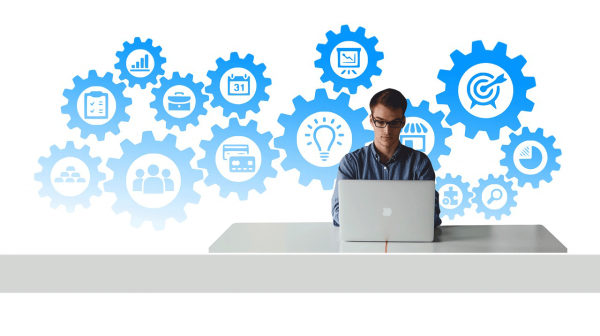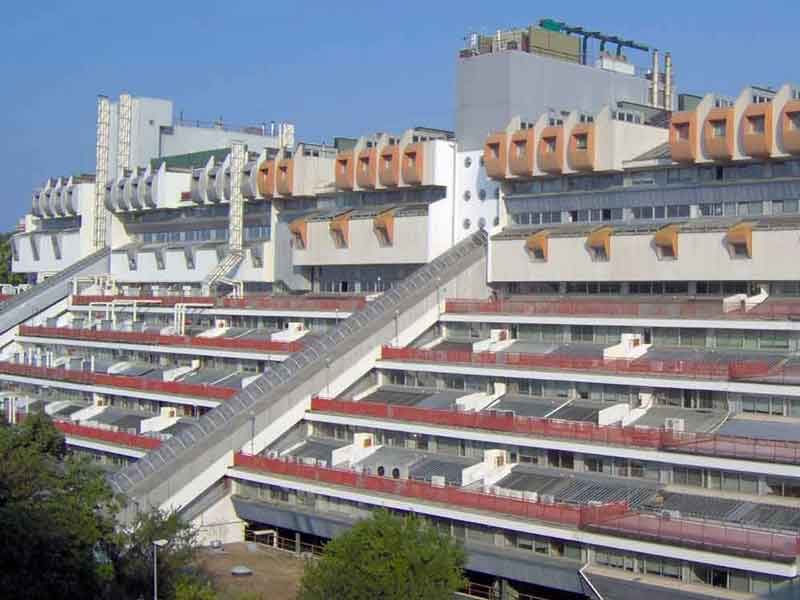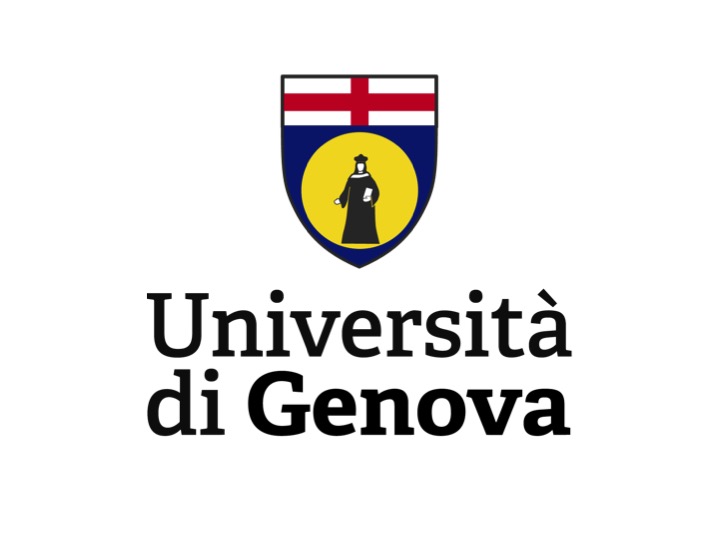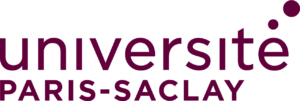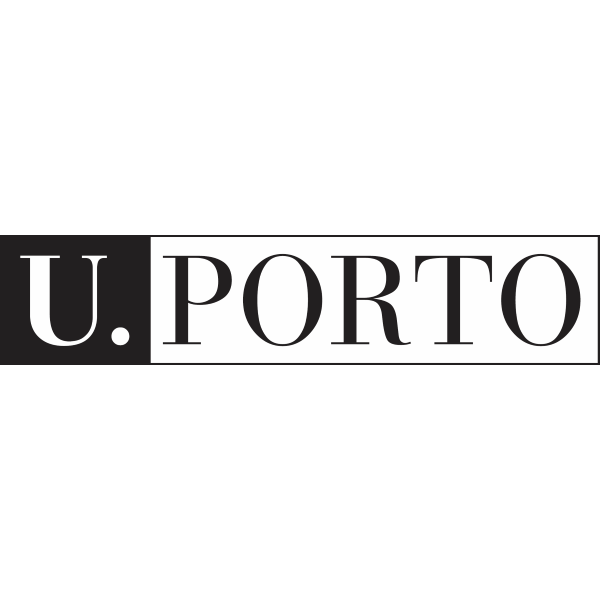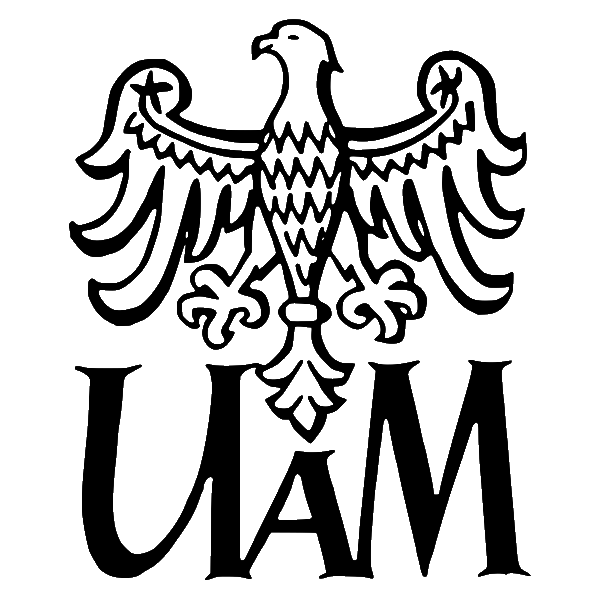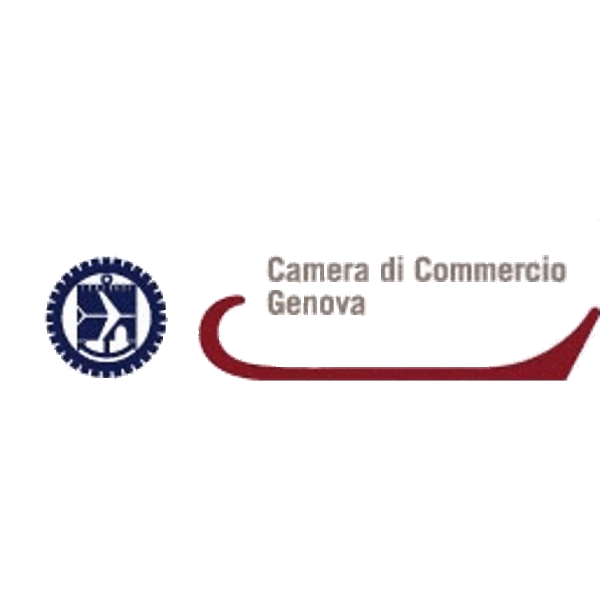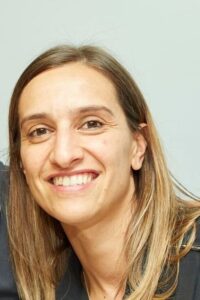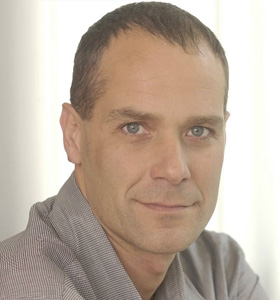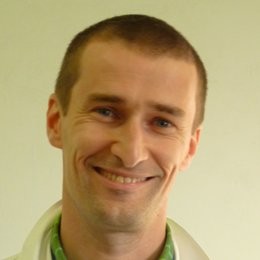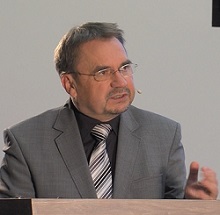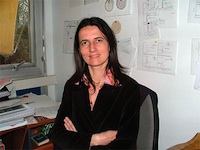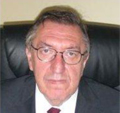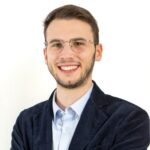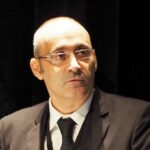Skills & Interests
Languages
English, german, french
Expertise
Entrepreneurship, chemistry, aviation, luxury, innovation and entrepreneurship, international brand management, sports
International Interests
Central Asia
Qualification
Scholarly Academic
Academic Degrees
Doctorat Université de Marseille (F), Marseille, France, Engineering, 1987.
Master Université Aix Marseille, CES Genie Chimique, 1984.
Master Université Aix Marseille II, Marseille, France, D.E.A. postgraduate degree in Organic Chemistry, 1984.
Other E.S.C.M. (ENSPICAM, Centrale Marseille), Marseille, France, Chemical Engineering, 1984.
Work Experience
Scholar SoSMSE in partnership with Universities of Poznan, Potsdam, Porto and Genova, Univerity Paris Sud (January, 2018 – Present), Paris, France.
Professeur, Institut de Développement du Sport par la Formation (2016 – Present), Besançon, France.
Busines Plans Courses Wimbledon, Key Biscayne, ATP / WTA Tennis Professional Associations (2016 – Present), Wimbledon, Miami, Florida.
Visiting Professor Executive Certificate in Luxury Management, ESA Ecole Supérieure des Affaires Beyrouth (March, 2015 – Present), Beyrouth, Lebanon.
Visiting Professor Global Faculty Programm, TECNOLÓGICO DE MONTERREY, Guadalajara, Mexico (February, 2014 – Present), Guadalajara Mexico, Mexico.
Lecturer, Global Fashion Management Conference,London College of Fashion, UK (February, 2014 – Present), London, United Kingdom.
Visiting Professor INTnetwork CORINF on Correlated Multi-electron Dynamics in Intense Light Fields PhDSchool, Université Paris Sud Orsay (2014 – Present), Cargèze, France.
Programme Faculty Director Luxury Retail in LATAM, Florida International University (2014 – Present), MIAMI, United States of America.
Visiting Professor, Shanghaï International Studies University MBA (September, 2013 – Present), Shanghaï, China.
Visiting Professor School on Science Management for Scientists & Engineers Mundus, Universities of Genoa, Poznan, Porto, Potsdam and Paris Sud Orsay (2010 – Present), Porto, Portugal.
Scientific Director of MSc Luxury & Fashion Management, SKEMA Business School (2009 – Present), Sophia Antipolis, France.
Visiting Distinguished Professor, Jaypee Institute of Information Technology and Business School Noida India (2009 – Present), Noida, India.
Professor of Marketing, SKEMA Business School (1998 – Present), Sophia Antipolis, France.
Visiting Lecturer, Université de la Méditerranée (1990 – Present), Aix-Marseille, France.
Invited, Digital Luxury, Wharton School, University of Pennsylvania (May, 2015 – May, 2015), New York, Pennsylvania.
Associate Dean for Marketing, SKEMA Business School (2010 – 2012), Sophia Antipolis, France.
Visiting Distinguished Professor, Indian Institute of Foreign Trade Delhi Kolkata (2007 – 2009), New Delhi/ Kolkata, India.
Lecturer, IDRAC (2004 – 2006), N.C, France.
Lecturer, IUT Cannes (2004 – 2006), Cannes, France.
Lecturer, EDHEC & Espeme NICE (1992 – 2006), Nice, France.
Administrator of Laboratory Pilots, SBI (Group VIAG / SKW and Sanofi-Aventis) (1994 – 1995), N.C, Unknown.
Research Engineer, SANOFI INDUSTRIES (1987 – 1994), Grasse, France.
Research Engineer, Hoffman Laroche Switzerland : Center of Pharmaceutical Researches (1983 – 1985), N.C, Switzerland.
Intellectual contributions
Articles in Journals
COSTE-MANIERE, I. (2018). Changer de culture. Chrono Journal Comité Olympique.
COSTE-MANIERE, I., Mastré, M., & Croizet, K. (2018). Use of Phenolic Compounds as Stabilizing Agents for Silicon-Based MoleculesChe. Chemical Sciences Journal., doi: 10.4172/2150-3494.1000178.
COSTE-MANIERE, I., Ramchandani, M., & Van Holt, J. (in press, 2017). What Drives Sustainable Luxury Consumption in a Status driven society like India ? Journal of Textile Engineering & Fashion Technology, 65 (2), 1-4.
COSTE-MANIERE, I. (2017). Giorgio Armani’s Empire – Giorgio Armani the ‘Master’ of Luxury. Journal of Textile Engineering & Fashion Technology, 2 (4), 0067.
Coste-Manière, I., Garçon, N., Pradère, C., & Ramchandani, M. (in press, 2015). Paris as a gleaming catalyst for luxury brands. Journal of Global fashion Marketing.
Hoffmann, J., & Coste-Manière, I. (2014). Luxury Industry: The New Normal. The European Financial Review.
Halvorsen, K., Hoffmann, J., Coste-Maniète, I., & Stankeviciute, R. (2013). Can fashion blogs function as a marketing tool to influence consumer behavior? Evidence from Norway. Journal of Global fashion Marketing, 4 (3), 211-224.
Rollet, M., Hoffmann, J., Coste-Manière, I., & Panchout, K. (2013). The concept of creative collaboration applied to the fashion industry. Journal of Global fashion Marketing, 4 (1), 57-66.
Hoffmann, J., & Coste-Manière, I. (2013). Which Global Luxury Trends for the Coming Years? The World Financial Review, 57-59.
Van Gorp, T., Hoffmann, J., & Coste-Manière, I. (2012). Brand Building: Luxury Leather Goods Brands Anatomized. Journal of Global fashion Marketing, 3 (3), 127-134.
Ramchandani, M., & Coste-Manière, I. (2012). Asymetry in Multi-Cultural Luxury Communication: A Comparative Analysis on Luxury Brand Communication in India and China. Journal of Global fashion Marketing, 3 (2), 89-97.
Coste, I., Prayag, G., & Singh, J. (2011). Emergence of Indian Luxury Brands: Pride for India. Business Management Chronicles, 14-17.
Bouchet, M., Laguerre, C., & Coste-Manière, I. (2011). Evolution of the Global Financial System : Moralize and Separate ‘Real Economy’ from ‘Virtual Sphere’ is the Key. Diplomatist Magazine, 34.
Coste, I. (2011). France Luxury Brands in India. Diplomatist Magazine, 24-25.
Coste, I. (2011). France, an emerging Mono Destination for Indian tourists. Diplomatist Magazine, 18-19.
Coste-Manière, I. (2011). France, an emerging Mono Destination for indian tourists. Diplomatist Magazine, 18-19.
Bouchet, M., Laguerre, C., & Coste-Manière, I. (2011). PIGIS: The Backlash of Euros’ Ecstasy. Diplomatist Magazine, 15-16.
Coste, I. (2010). Vibrant luxury in India. Business Management Chronicles, 14 (12), 34-35.
Hoffman, J., Coste-Manière, I., & Maki, I. (2010). Le marché chinois en pleine explosion. Expression Cosmétique (2), 18-19.
Eymé, D., Hoffmann, J., & Coste-Manière, I. (2010). Comment augmenter le ROI de votre budget communication par l’affiliation et le Search Marketing. Expansion Management Review (138), 32-36.
Coste-Manière, I. (2010). The sky is the limit for luxury goods in India. The Financial Express, 2.
Sola, C., & Coste-Manière, I. (2008). Luxe et sensorialité : Les sens du Luxe. Luxe et Finance.
Coste-Manière, I. (2006). Le luxe, pourquoi, pour qui ? Le Rotarien, 27-30.
Coste-Manière, I. (1999). D’un parfumeur. Chronique d’Art Sacré (57), 24.
Articles in Proceedings
COSTE-MANIERE, I., Saponaro, M., Le Gal, D., & Guisiano, M. (2019). The use of Artificial Intelligence for the improvement of customer online and offline. ICONIC 2018 IEEE MAURICON International Conference on Intelligent and Innovative Computing Applications.
COSTE-MANIERE, I., HAMELIN, C., MALENGE, E., FARBOS, L., & Rondelli, S. (in press, 2018). WeChatâ : The Present and the Future. ICONIC 2018 IEEE MAURICON International Conference on Intelligent and Innovative Computing Applications.
COSTE-MANIERE, I., Saponaro, M., Le Gal, D., & Guisiano, M. (in press, 2018). The use of Artificial Intelligence for the improvement of customer online and offline. ICONIC 2018 IEEE MAURICON International Conference on Intelligent and Innovative Computing Applications.
COSTE-MANIERE, I., CASTILLAN, L., CHHEANG, C., DENOUX, C., FERRENBACH, C., Caroline Gérard, Evelyne Hua and Julia Van Holt (2018). Online luxury: The code breakers of a traditional sector. ITQM 2017.
COSTE-MANIERE, I., Guerquin-Kern, L., Aybaly, R., & Madacova, D. (2018). “Sustainability in the automotive world : From Tesla to heaven !”. ITQM 2017.
COSTE-MANIERE, I., AMIROUCHE, M., BOYAVAL, F., ARNAULT, F., & SALOME, C. (2018). “Luxury Toys for Men: when women will let us decide and buy on our own?”. ITQM 2017.
COSTE-MANIERE, I., Thubert, S., FRANCOULON, L., WEBER, L., & BOYAVAL, F. (in press, 2017). Duty Free shops : Are luxury being democratized ? ITQM 2017.
Azoulay, C., Cavanaugh, L., Coste-Manière, I., Darren, D., Erkova, D., Ordabayeva N. (2015). Luxury in the Digital World: How Digital Technology Can Complement, Enhance, and Differentiate the Luxury Experience. Warthon School of the University of Pensylvania, Baker Retail: Innovation and Luxury dilemna.
Books, Monographs, Compilations, Manuals
Hoffmann, J., & Coste-Manière, I. (2012). Global Luxury Trends: Innovative Strategies for Emerging Markets Palgrave Macmillan.
Hoffmann, J., & Coste-Manière, I. (2011). Luxury Strategy in Action Palgrave Macmillan.
Chapters, Cases, Readings, Supplements
BINET, F., COSTE-MANIERE, I., DECOMBES, C., GRASSELLI, Y., OUEDERNI, D., Mukta Ramchandani (2019). Fast fashion and sustainable consumption. In Subramanian Senthilkannan Muthu (Ed.), Fast Fashion brands and sustainable consumption, Collection Textile Science and Clothing Technology, (pp. 19-36). Singapore: Springer International Publishing.
COSTE-MANIERE, I., GODAT, E., BRENOT, A., CHUFFART, C., RAMCHANDANI, M., ManonDeroche, EvaGodat, LauraLemoine, EleonoraSette, CarolineTornaire (2019). Water footprint in fashion and luxury industry. Water in Textiles and Fashion Consumption, Footprint, and Life Cycle Assessment (pp. 95-113). Elsevier.
COSTE-MANIERE, I., CHARPENTIER, P., BOYER, G., CROIZET, K., VAN HOLT, J., Sudeep CHHABRA, Armani India (2018). Innovation and sustainability in the luxury, fashion, fabrics industry. In Springer (Ed.), Models for sustainable framework in luxury fashion (pp. 11-35). Springer.
COSTE-MANIERE, I., & RAMCHANDANI, M. (2018). Eco-conspicuous vs eco-conscious consumption; Co-creations, a new definition of luxusy and fashion. In Springer (Ed.), Models for sustainable framework in luxury fashion; Luxury and Models (pp. 1-11). Springer.
COSTE-MANIERE, I. (2018). Marketing d’influence et Jeux Olympiques. “Marketing d’influence et Relations Publics, amis ou ennemis ?”. -.
COSTE-MANIERE, I., Reault, M., Ramchandani, M., Van Holt, J., & Guezguez, H. (2017). Detoxifying Luxury and fashion industry; case of market driving brands. Detox Fashion ; Case studies (pp. 18). Springer International Publishing.
Ramchandani, M., & Coste-Manière, I. (2016). To Fur or not to Fur: Sustainable Production and Consumption Within Animal-Based Luxury and Fashion Products. In Muthu, Subramanian Senthilkannan (Ed.) (Ed.), Textiles and Clothing Sustainability: Sustainable Fashion and Consumption (pp. 41-60). Springer.
Coste-Manière, I., Amos, C., & Grasselli, Y. (2016). The Virtuous Circle: Hard Sustainable Science Versus Soft Unsustainable Science Within Marketing Functions of Fashion and Luxury Sectors and How to Prevent ‘Soylent Green’ from Happening. Textile Science and Clothing Technology Implications in Textiles and Fashion (pp. 75-87). Springer.
Coste-Manière, I., Ramchandani, M., Sudeep, C., & Burak, C. (2015). Long-Term Sustainable Sustainability in Luxury. Where Else?. Handbook of Sustainable Luxury Textiles and Fashion, volume 2 (pp. 17-34). Miguel Angel Guardetti, Subramanian Senthilkannan Muthu Editors: Springer Science+Business Media Singapore 2016.
Hoffmann, J., & Coste-Manière, I. (2013). Introduction. In Hoffmann, J., Coste-Manière, I. (Ed.), Global Luxury Trends: Innovative Strategies for Emerging Markets. Palgrave Macmillan.
Coste-Manière, I. (2013). Dassault’s Falcon F7X. In Press, –.
Coste, I., & Panchout, K. (2011). The Evolution of the Luxury Market: Stairway to Heaven?. In Hoffmann, J., Coste-Manière, I. (Ed.), Luxury Strategy in Action. Palgrave Macmillan.
Coste-Manière, I., & Shanker, R. (2010). Luxury services. Services Marketing. -.
Conference Presentations
COSTE-MANIERE, I., MALENGE, E., HAMELIN, C., FARBOS, L., & RONDELLI, S. (2019). WeChat : The Present and the Future. ICONIC 2018 IEEE MAURICON International Conference on Intelligent and Innovative Computing Applications, Plaine Magnien, Mauritius.
COSTE-MANIERE, I. (2019). Millennials as catalysts of the branding revolution in luxury. Global Management Conference Tokyo 2018, Tokyo, Japan.
COSTE-MANIERE, I., Saponaro, M., Le Gal, D., & Guisiano, M. (2019, December). The use of Artificial Intelligence for the improvement of customer online and offline. ICONIC 2018 IEEE MAURICON International Conference on Intelligent and Innovative Computing Applications, Plaine Magnien, Mauritius.
COSTE-MANIERE, I. (2019, April). Artificial Intelligence in updated Luxury Brand Management for Millenials. BESST-2019 International Conference on Impact of R & D on Business Economics, Management, Social Sciences, Banking & Finance, Bali, Indonesia.
COSTE-MANIERE, I., VINTEL, J., & GUIYAMA-MASSOGO, C. (2018). The Francophonie dilemna : from Baron Pierre de Coubertin to Paris 2024. 14th Joint International Session for Presidents & Directors of National Olympic Academies and Officials of National Olympic Comitees, International Olympic Academy, Olympie, Greece, Olympie, Greece.
COSTE-MANIERE, I. (2018). Trends in Luxury Brand Management for Millenials. Invited presentation at SISU Shanghaï International Studies University, Shanghaï, China-PRC.
COSTE-MANIERE, I. (2018, October). Green safaris in green Tanzania. Invited presentation at International Conference on Tourism & Marketing, Arusha, Tanzania.
COSTE-MANIERE, I. (2018, October). Tanzanites and semi precious gemstones trends. High Jewellery. Invited presentation at Arusha Consulat and International African, Arusha, Tanzania.
COSTE-MANIERE, I. (2018, September). Le sport, instrument de développement urbain durable :du local à l’international. Sport et développement des collectivités, marketing urbain Marseille Capitale Européenne 2017, BMVR l’Alcazar, Marseille, France.
COSTE-MANIERE, I., Guerquin-Kern, L., Aybaly, R., & Madacova, D. (2017). Sustainability in the automotive world : From Tesla to heaven. ITQM 2017, Noida, India.
COSTE-MANIERE, I. (2017). New Luxuries in China. Club L’Avenue Shanghaï, Shanghaï, China.
COSTE-MANIERE, I. (2017). Francophonie, olympisme: vecteurs de croissance économique. Jeux de la Francophonie Abidjan, Hotel Azalai, Abidjan, Côte d’Ivoire.
COSTE-MANIERE, I. (2017). Bespoke and affinity driven upcoming luxuries. ITQM, Noida, India.
COSTE-MANIERE, I., AMIROUCHE, M., BOYAVAL, F., ARNAULT, F., & SALOME, C. (2017). Luxury Toys for Men : when women will let us to decide and buy on our own ? ITQM 2017, Noida, India.
COSTE-MANIERE, I., CASTILLAN, L., CHHEANG, C., DENOUX, C., FERRENBACH, C., Caroline Gérard, Evelyne Hua and Julia Van Holt (2017). Online luxury: The code breakers of a traditional sector. ITQM 2017, Noida, India.
COSTE-MANIERE, I., THUBERT, S., FRANCOULON, L., WEBER, L., & BOYAVAL, F. (2017). Duty Free Shops : Are luxury brands being democratized. ITQM 2017, Noida, India.
COSTE-MANIERE, I., Van Holt, J., & Chhabra, S. (2017). Sustainable nanotechnology : Can technology and innovation be used in order to develop sustainable design ? Global Fashion Management Conference, Vienna, Austria.
COSTE-MANIERE, I. (2017). Francophonie, Olympisme et marketing sportif. Semaine Olympique Universitaire, Nice, France.
COSTE-MANIERE, I. (2017). « Les JO de 2024 en France : quelles opportunités pour les entreprises françaises ? MEDEF CCI CGPME CNOSF AFAO, Nice, France.
COSTE-MANIERE, I. (2017, November). Brands dilemna: from handscraftsmanship to iglobalization, the specific example of Firstflag. China Academy of Art, Musée d’Allure, Suzhou, Suzhou, China-PRC.
COSTE-MANIERE, I. & LEHIANY, B. (2017, September). Du bénévolat aux Jeux Olympiques : la Francophonie et Coubertin. Influence Day 2017, Paris, France.
COSTE-MANIERE, I. (2017, March). Professional tennis world : A luxurious think tank. Invited presentation at ATP & WTA Professionals Course, Miami, Florida.
COSTE-MANIERE, I. (2016). Luxury Brand Strategy: hunting, and looking for upcoming niches. SHU MBA, Shanghaï University, Shanghaï, China-PRC.
Azoulay, C., Cavanaugh, L., Coste-Manière, I., Darren, D., Erkova, D., Ordabayeva N. (2016, May). Luxury in the Digital World: How Digital Technology Can Complement, Enhance, and Differentiate the Luxury Experience. Warthon School of the University of Pensylvania, Baker Retail: Innovation and Luxury dilemna, New York, Pennsylvania.
COSTE-MANIERE, I. (2016, May). Déceler, transformer et construire le capital humain. Invited presentation at Ministère du Commerce, Panel des Chambres de Commerce, MDE Business School / IESE University Navarra, Fondation BENIANH, Abidjan, Côte d’Ivoire.
COSTE-MANIERE, I. (2016, May). Nouvelles perspectives des ethno luxes éthiques et de niches. ENSEA, École Nationale supérieure de Statistique et d’Économie Appliquée Abidjan, Abidjan, Côte d’Ivoire.
Augier, M. & Coste-Manière, I. (2015, December). How to sell your brand in the digital era-From WOM to Snapchat and Instagram. International Conference on advances in management and techonology in a global world ICAMT-15, Noida, India.
Bhasker, S., Casanova, M., Crouzet, E., Djoudi, L., Coste-Manière, I., M. Gleize and Y. Zhang (2015, December). Role of Pop-up Concept in Modern Merchandising. International Conference on advances in management and techonology in a global world ICAMT-15, Noida, India.
Coste-Manière, I. & Ramchandani, M. (2015, December). What drives sustainable luxury consumption in a status driven society like India? International Conference on advances in management and techonology in a global world ICAMT-15, Noida, India.
Coste-Manière, I., Azan, W., Cabaud, M., Charrier, M., Falk, A., M. Izdinke, C. Meret, M. Milleliri and J. Ternon (2015, December). Luxury Accessories-Seduction: From Toes and Nails to Eyes: Step into a New landscape within the Luxury Industry. International Conference on advances in management and techonology in a global world ICAMT-15, Noida, India.
Guerquin, K., Madacova, D., Sudeep, C., & Coste-Manière, I. (2015, December). Giorgio Armani: The Marine of Luxury. International Conference on advances in management and techonology in a global world ICAMT-15, Noida, India.
Pellier, M., Spier, P., & Coste-Manière, I. (2015, December). Wine Industries in France, India, China: A comparative Analysis. International Conference on advances in management and techonology in a global world ICAMT-15, Noida, India.
Coste-Manière, I. (2015, October). Stratégies gagnantes : De nouvelles stratégies pour de nouvelles audiences : le lancement de la Chaîne Olympique et le défi des Fédérations Internationales. Invited presentation at Sportel Monaco 2015, Forum Grimaldi, Forum Grimaldi, Monaco.
Coste-Manière, I. (2015, September). Globalization – Innovation – Leadership. 3rd International Conference on International Marketing in Asia Pacific Issues and Challenges, Coimbatore, India.
COSTE-MANIERE, I. (2015, July). Strategies for Independent Fashion and Luxury Companies. Global Fashion Management Conference, Florence, Italy.
COSTE-MANIERE, I. (2015, June). Bespoke evolution and contemporay luxury issues. SDPA Jiangsu Entrepreneurs Development Promotion Association, Suzhou, China-PRC.
Lucky, Y. & Coste-Manière, I. (2015, June). Licensing best-practices of independent luxury brands. Global Fashion Management Conference, Florence, Italy.
Coste-Manière, I. (2015, May). Le Luxe surfe sur les crises. Ecole Nationale des Statistiques et d’Economie Appliquée, Abidjan, Côte d’Ivoire.
Coste-Manière, I. (2015, May). Maximizing the effects of Celebrity endorsement on luxury brands. New Waves of Luxury, South Korea, Seoul, Republic of Korea.
Coste-Manière, I. (2015, May). De l’art au luxe. Ecole Nationale des Beaux Arts, Abidjan, Côte d’Ivoire.
Coste-Manière, I. (2015, April). Trends in digital luxury. Baker Retail: Innovation and Luxury dilemna, Warthon School of the University of Pensylvania, New York City NY, United States of America.
Coste-Manière, I. (2015, March). Consumer behavior: the specific case of the Middle East. Beyrouth, Ecole Supérieure des Affaires, Beyrouth, Lebanon.
Coste-Manière, I. (2015, February). Luxe et balance commerciale. Conseil Economique Social et Environnemental de la République Française, Paris, France.
Coste-Manière, I. (2014). Dassault Systèmes and Fashion Lab : Deepdive into a sensorial luxury universe. Conférence professionnelle, Paris, France.
Coste-Manière, I. (2014, October). Miami: Gateway to New Luxuries. Luxury Media Creative industries & Arts, French American Chamber of Commerce, Miami, Florida.
Coste-Manière, I. (2014, October). “Jiangsu customized bespoke”. SPDA Suzhou, Suzhou, China.
Coste-Manière, I. (2014, September). Luxury Industry: The New intercontinental Normal. From here to eternity… CCI FRANCE CHINE, Shanghai, China.
Coste-Manière, I. (2014, July). Mapping Paris as a Fashion and Haute Couture Capital. Global Marketing Conference, Singapore, Singapore.
Coste-Manière, I. (2014, February). India: Opportunities and Challenges for the Luxury and Fashion Industry Global Fashion Conference. Global Fashion Management Conference, London, United Kingdom.
Coste-Manière, I. (2013, February). Brilliant SME in the Luxury & Fashion world. American Chamber of Commerce, Suzhou, Shanghaï,, Suzhou – Shanghaï, China.
Coste-Manière, I. (2012). Luxury Full Moon. SUDA Suzhou, CCIFC Shanghaï, Suzhou – Shanghaï, China.
Coste-Manière, I., Hoffmann, J., & Pradère, C. (2012). How can a luxury brand be positioned in emerging markets: China, India and Brazil? Luxe Pack Monaco, Monaco, Monaco.
Coste-Manière, I. (2012, October). Creativity and innovation in luxury industries. Journées Economies et Management de la Créativité (OFCE, HEC Montréal…), -, France.
Coste-Manière, I. (2012, May). Marketing rural, de masse ou de luxe. Résonances et dissonances. Université Catholique d’Afrique Centrale, Yaoundé, Cameroon.
Coste-Manière, I. (2012, February). At the crossroads. New metaluxuries coming up. 1st SKEMA Luxury Summit, Sophia Antipolis, France.
Coste-Manière, I. (2011). From traditional marketing to multi-luxurious parameters strategy. Leather Fair New Delhi, New Delhi, India.
Coste-Manière, I. (2011, December). L’émergence des néo-radins. Passion Commerce, CCI Nice, Nice, France.
Coste-Manière, I. (2011, November). Bridge to luxury. Suzhou, China, Suzhou, China.
Coste-Manière, I. (2010). Vibrant luxury and the optimization of ROMI. National Marketing Symposium, Indian Institute of Foreign Trade, New Delhi, India.
Coste-Manière, I. (2009). Luxury? What else? Indian Institute of Foreign Trade, New Delhi, India.
Coste-Manière, I. (2009). Incredible India : The shift to Gen X and Y in the indian Hospitality. Ministery of Tourism, Indian Institute of Technolgy, New Delhi, India.
Coste-Manière, I. (2009, August). Luxury in India : From here to eternity. Shaheed Sukhdev College of Business Studies, New Delhi, India.
Coste-Manière, I. (2008). Green India and the IT Industry. ITC The Sonar, National Marketing Symposium, Indian Institute of Foreign Trade, Kolkata, India.
Other Research
2018: COSTE-MANIERE, I., & CHEVROT, Q., L’apport des nouvelles technologies pour la connaissance client dans le domaine du Luxe Survey Magazine T4 2018, p 80-81. [Applied or Integrative/application Scholarship]
2017: COSTE-MANIERE, I., & Schwyter, A., Comment Fila veut ressusciter sa gloire d’antan. [Not an IC]
2015: Coste-Manière, I., Chrono, la revue du Comité Olympique : le sport est-il laïc ? 03/15. [Not an IC]
2015: Coste-Manière, I., The Business Of Luxury: Growth In Emerging Markets Boosts MBA Careers, businessbecause.com, 21 avril. [Applied or Integrative/application Scholarship]
2015: Coste-Manière, I., Global Luxury Trends: Innovative Strategies for Emerging Markets. [Applied or Integrative/application Scholarship]
2015: Coste-Manière, I., From chemistry to luxury, Let’s TV China, reportage. [Applied or Integrative/application Scholarship]
2015: Coste-Manière, I., Ivan Coste-Manière élu nouveau président : AG du Comité Régional olympique à Mandelieu omnisports, NICE MATIN, 30 mars.
[Applied or Integrative/application Scholarship]
2015: Coste-Manière, I., Sport : avancée historique en termes de droits des sportifs. Nice Premium, 25 novembre. [Not an IC]
2014: Costa-Manière, I., Fashion Weeks mondiales : Paris n’a pas à rougir de son hégémonie sur la mode – nouvelobs.com – March 12, 2014. [Applied or Integrative/application Scholarship]
2014: Coste-Manière, I., Skema, Une formation à Miami pour des responsables de marque de luxe, Education.newstank.fr, 02 septembre 2014, Article N° 24415. [Applied or Integrative/application Scholarship]
2014: Coste-Manière, I., L’essor d’un nouveau luxe sur mesure, Nice Matin, 3 novembre. [Applied or Integrative/application Scholarship]
2014: Coste-Manière, I., Giacomo de Pass de l’art au luxe, Ed Caisse d’Epargne 11/14. [Applied or Integrative/application Scholarship]
2014: COSTE-MANIERE, I., The new road to high end silks, interview ITV Suzhou, september. [Applied or Integrative/application Scholarship]
2014: Coste-Manière, I., SKEMA Commercial College Luxury goods Business Global New Normality seminar held successfully – Icity.com, 19 septembre. [Applied or Integrative/application Scholarship]
2014: Coste-Manière, I., Chinese Luxury Brands: Stairways to Heaven. Am amazing talk given by Vice President & Special Advisor of Olympic Committee, SKEMA star professor Ivan Coste-Manière and his excellent student Eileen Hochreuther, EXPO BRANDING. [Applied or Integrative/application Scholarship]
2012: Coste-Manière, I., Grandes Ecoles Françaises : Fenêtre ouverte sur l’excellence et l’espoir.[Not an IC]
Professional Service
Chair: Committee / Task Force
2019: International Conference on New Age Business Practices: Leveraging Digitization for Marketing Excellence-NABP 2019., New Delhi, India (International).
2015: New Waves of Luxury, South Korea, ASCO, Seoul, Seoul, Republic of Korea (International).
2015: International Conference on Advances in Management and Technology in a global world (ICAMT-15) December 18-20, 2015, Noida, India (International).
Chair: Conference / Track / Program
2018 – 2019: Global Fashion Management Conference, Paris, France (International).
2018: Global Management Conference, Tokyo, Japan (International).
2017: ITQM 2017, Noida, India (International). Chair
2017: 2017 Global Fashion Management Conference University of Vienna (International).
2015: Global Fashion Conference, Firenze University, Firenze, Italy (International).
2014: Global Fashion Conference London College of Fashion, Feb 2014, London, United Kingdom (International).
2014: 2014 Global Marketing Conference, Singapore, Singapore (International).
PhD supervision (students from other institutions)
2019: ‘Marketing Mix for Low-Cost Healthcare Innovations: The Ten Ps Framework’ Ms. Julie GeorgeBharathiar University, Coimbatore, India, Coimbatore, India (International).
2019: LM Thapar School of Management (LM TSM), Thapar Institute of Engineering and Technology (Deemed University), Punjab, India, Thapar, India (International).
2018: ” Consumer Satisfaction and Repurchase Intensions Towards Select Luxury Brands in India” Ms. Anuradha Modak AMU, Aligarh.Muslim University, India, Aligarh, India (International). Ph.D thesis of Ms. Anuradha Modak on the topic ” Consumer Satisfaction and Repurchase Intensions Towards Select Luxury Brands in India” supervised by Dr. Mohd Naved Khan Department of Business Administration, AMU, Aligarh.
2018: Consumer Satisfaction and Repurchase Intensions Towards Select Luxury Brands in India, Aligarh Muslim University, India (International). Ms. Anuradha Modak on the topic ” Consumer Satisfaction and Repurchase Intensions Towards Select Luxury Brands in India”
2015: STRENGTH AND WEAKNESS OF CURRENT VALUE ADDED TAX SYSTEM – A STUDY OF JHARKHAND REGION” submitted by Mr Arun Kumar Singh. Indian School of Mines, Dhanbad, INDIA (International).
2015: The Effect of Selected Marketing Activities on Brand equity Dimensions: A Study of Fashion Apparel Brands in India ” , submitted by Ms. Saima Khan. Faculty of Management Studies and Research – Aligarh Muslim University, INDIA, Aligarh, India (International).
2015: A Sustainable Supply Chain Management Framework for IT Products – An Exploratory Study, Mr. Vishal Gupta, Jaypee Institute of Information Technology, Noida, India (International).
2015: Evaluating Training Effectiveness- An Analysis of Employability Skills and Associated Training Needs in the Information Technology, Ms. Neetima Agarwal, Jaypee Institute of Information Technology, Noida, India (International).
2015: PROFITABILITY AND SUSTAINABILITY FROM WASTE MANAGEMENT PRACTICES IN HOTELS AND ITS IMPACT ON ENVIRONMENT, Amar Nath, Jaypee Institute of Information Technology, Noida, India (International).
2015: Competencies for Effective Management Teaching – Perception of Teachers and Administrators of Indian B-Schools, Ms Kanupriya , Jaypee Institute of Information Technonolgy, Noida, India (International).
2015: CRM in organized retail with special reference to grocery and lifestyle segments in India, M. Mujibur Rahman, Indian School of Mines Dhanbad India (International).
2014: Jaypee Institute of Information Technology Noida India & Indian School of Mines (International).
“A Sustainable Supply Chain Management Framework for IT Products – An Exploratory Study” submitted by Mr. Vishal Gupta.
“Competencies for Effective Management Teaching – Perception of Teachers and Administrators of Indian B-Schools ” submitted by Ms Kanupriya.
2013: Indian School of Mines (International). “Evaluation of Corporate Social Performance of Indian Public Sector: A non parametric approach”.
“Money Attitudes as Predictors of Materialism and Compulsive Buying, and Gender Demographics, in the “New India”
2012: ” Customer Relationship Management and Customer Experience Management Using Business Online Communities ” .Ms. Shirin Alavi, JIIT Noida, India (International).
2011: “CUSTOMER CENTRIC BRANDING BY LEVERAGING CORPORATE BRAND IDENTITY AND CONSUMER BRAND KNOWLEDGE”. submitted by Ms Nidhi Sinha , Jaypee International Institute of Technology, Noida, India (International).
2010: DYNAMICS OF ORGANIZATIONAL CLIMATE ON RISK AND SUCCESS OF SOFTWARE PROJECT, ARPITA SHARMA, Department of Management Studies, Indian School of Mines Dhanbad (International).
Professional Memberships
National Olympic Academy Member, since 2017
Commission Régionale du Fonds pour le Développement de la vie associative, 2018
Vice-Chairman of the Association of the Olympic Academies of the French Speaking Countries, 2017-2021
Conseil Economique Social et Environnemental Région Sud Provence Alpes Côte d’Azur, 2017
Track and Field Federation, 2016
Chairman of the Regional Olympic Comitee (CROS Côte d’Azur), 2015-2017
Member of the Board of the Association of the Economic and Social and Environmental Council of the French Republic, Palais d’Iena, 2014-present
Special Advisor to the Chairman of the Association of the French Speaking Countries Olympic Academies,, 2014-2017
Member of the CDESI (Commission Départementale des Espaces, Sites et Itinéraires) Alpes Maritimes (sustainability and sports), 2013-2017
Olympic Comitee (Alpes Maritimes) Vice Président, 2013-2017
Chairman of the Aéro-Club of Saint Raphaël Est Varois (Cannes Mandelieu) Private Pilot, 2012-present
Special Advisor of the President of the Olympic Committee, 2008-Present
President, Regional Federation for Track and Field, 2007-Present
President of Celebrities for Sports and Charities (SAS Prince Albert Monaco), 2005-Present
Herculis Monaco IAAF Diamond League Meeting, Head of event, international referee, 2000-present
Treasurer, C.I.R.M (International Centre for Musical Research), 1995-2008
Vice Chairman Nikaïa International Track & Field Meeting (GP Mobil, IAAF, …), 1995-2002
Honorary Administrator, Society of French Perfumers, 1993-Present
Section Member (Economies Régionales et Aménagement du Territoire) of the Economic and Social Council (Palais d’Iena) of the French Republic, 1993-Present
Administrator, C.I.R.M (International Centre for Musical Research), 1992-Present
President A.I.T.P. / Association of Perfumery Engineers and Technicians, 1992-Present
President of A.I.A.M.I.P / International Association of Friends of the International Perfumery Museum, 1992-1995
Administrator of A.I.A.M.I.P / International Association of Friends of the International Perfumery Museum, 1990-2000
Member of the “Centre d’Evocation d’Art Mural”, SIVOM Vallée du Vrin, La Ferté Loupière. – Administrator, Museums’ Federation , Grasse, France (since 2012)., 1990
Member of the Board, CLUB de GRASSE (Promotion of Commercial Trade between Southern Europe and the Pacific Basin), 1989-Present
Special Assistant: Plan de Grasse, Town Hall City of GRASSE, France, 1989-1995
Member of Directors· Committee, FRENCH RIVIERA TRACK & FIELD ASSOCIATION, 1979-2016
